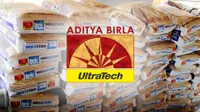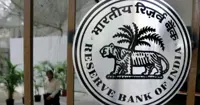The government today announced changes in the goods and services Tax (GST) that would exempt an additional two million small businesses from paying GST, in a move that would bring relief to medium, small and micro enterprises (MSME), including small traders.

The Goods and Services Council at its meeting today decided to raise the threshold limit for exemption from registration and payment of GST for supplier of goods to Rs40 lakh while also keeping the Rs20 lakh limit. States would have an option to decide about one of the limits within a week’s time. The threshold for registration for service providers would continue to be Rs20 lakh and in case of special category states at Rs10 lakh.
“India will exempt small businesses with annual sales of up to Rs40 lakh from paying taxes under the GST,” finance minister Arun Jaitley told reporters, after the GST Council meeting.
The annual turnover limit for availing Composition Scheme for Goods under the Goods and Services Tax (GST) has been increased to Rs1.5 crore in the preceding financial year. Special category states would decide, within one week, about the composition limit in their respective states.
The government will also simplify the compliance under Composition Scheme as now they would need to file one annual return but payment of taxes would remain quarterly (along with a simple declaration).
All these decisions would be made operational from 1 April 2019.
A Composition Scheme will be made available with a tax rate of 6 per cent (3 per cent CGST and 3 per cent SGST) for suppliers of services (or mixed suppliers) having an annual turnover in the preceding financial year up to Rs50 lakh.
The scheme will be applicable to both service providers as well as suppliers of goods and services, who are not eligible for the presently available Composition Scheme for goods.
They would have to file one annual return with quarterly payment of taxes (along with a simple declaration).
The government plans to set up a seven-member group of ministers to examine the proposal of giving a Composition Scheme to boost the residential segment of the real estate sector.
A group of ministers will also be constituted to examine the GST rate structure on lotteries.
The GST Council also approved a levy of cess on intra-state supply of goods and services within the state of Kerala at a rate not exceeding 1 per cent for a period not exceeding 2 years, in view of the catastrophic floods in August last year.








.webp)























